Swift Government Action on Policy needed to Mobilise Bioenergy
The need for the government to immediately open the main support Scheme for Renewable Heat (SSRH) and to progress with a feed in tariff for biogas were the top priorities for delegates attending todays Irish Bioenergy Association (IrBEA) conference held at Croke Park.
The theme of the conference sponsored by CPL Industries and DWF is ‘Mobilising Bioenergy with Policy and Action’. The conference brings together delegates from across the main bioenergy sectors of biomass, biogas, biofuels and energy crops who gather to discuss the actions needed to mobilise the bioenergy industry with a particular focus on technology, investment and the climate change agenda as we transition to more renewables and sustainable energy sources.
The potential for the bioenergy sector in Ireland is huge and swift government action on bioenergy policy can accelerate economic growth, sustain thousands of jobs especially in rural areas, improve environmental quality, drastically cut CO2 emissions, assist in meeting our international renewable energy commitments and avoiding EU fines.
Speaking in his opening address Seán Finan CEO of IrBEA stated “Our immediate priority is the roll out of the full SSRH scheme. The industry has had many promised and expected launch dates of SSRH which have come and gone. The industry eagerly awaits the launch of this scheme. We call on Minister Bruton to clarify today the timelines for the scheme launch. The industry demand certainty on the scheme timelines as they are currently organising staffing and work plans for the remainder of the year”
Opening the conference, Chair of the joint Oireachtas Committee on Communication, Climate Action and Environment Hildegarde Naughton T.D. updated all attendees on the work of her committee and the role bioenergy can play in addressing the climate change challenges facing Ireland.
In his presentation President of the Irish Bioenergy Association Des O’Toole and Coillte’s Biomass Development Manager highlighted the potential for forestry and biomass as key elements of our bioenergy sector.
Mr O’Toole said “The bioenergy sector is a key part of the overall forestry ecosystem and has an important part to play in its growth. As well as contributing towards Ireland’s ambitious renewable energy targets and Ireland’s transition from a fossil-fuel based economy to a low carbon economy, the expected growth in demand for biomass will be a key outlet for the increased supply of fibre projected over the next 10 years’’.
Paddy Phelan Vice President of IrBEA said “Clear and obvious economic benefits of the local energy supply chain and it’s natural position as a low carbon energy supply, which will future proof us within the Renewable Energy Directive II requirements of less than 60g of CO2 per unit of energy produced by 2026 on the island Ireland”.
IrBEA actively promotes the huge potential for development of a meaningful biogas industry in Ireland.
Finan continued” As an agriculture country, we have an abundance of feedstock. There are many benefits for biogas across many government departments. These include reducing agricultural emissions, improving water quality, economic and jobs in rural and decarbonisation of our gas network and transport fleet with green gas to name but a few”
For a biogas industry to be stimulated it will need a government support in terms of a feed in tariff. A high percentage of a tariff provided would go directly back to farmers in rural Ireland for the purchase of feedstock by biogas operators.
Finan concluded “This support needs to be assessed by looking at the multi benefits of biogas from a climate, emissions reduction, jobs perspective across a number of government department rather than looking at this as simply a financial cost to the exchequer.”
ENDS
CONTACT: Seán Finan, IrBEA CEO, +353 87 4146480 or seanfinan@irbea.org
EDITOR’S NOTES:
Photo Attached: Des O’Toole IrBEA President and Coillte Business Development Manager, Chair of the joint Oireachtas Committee on Communication, Climate Action and Environment Hildegarde Naughton T.D. Sean Finan CEO IrBEA

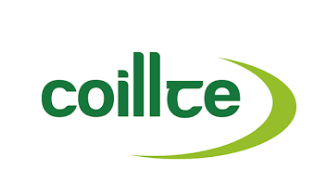
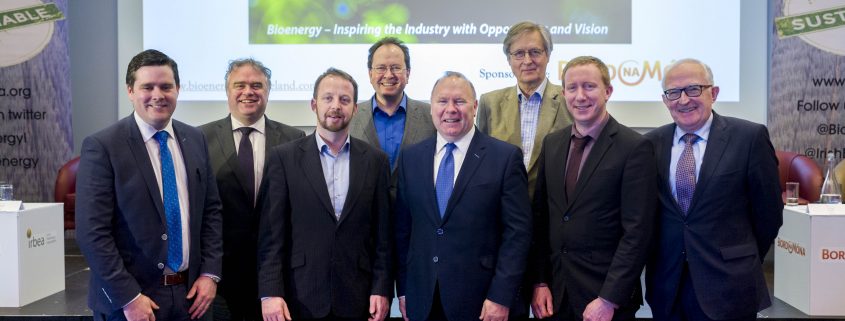
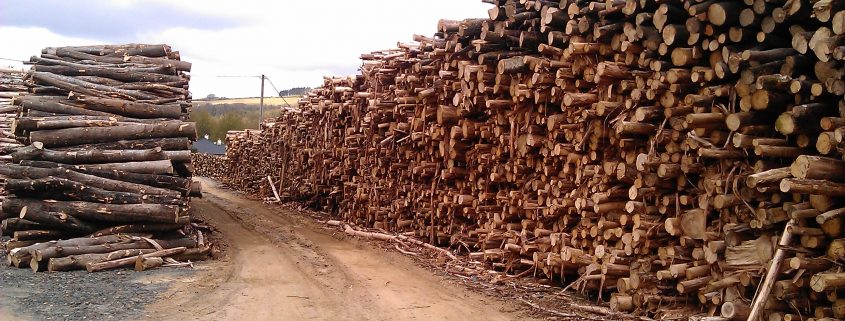
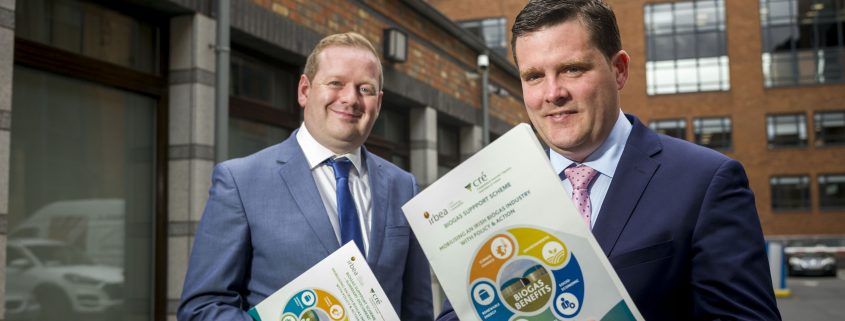
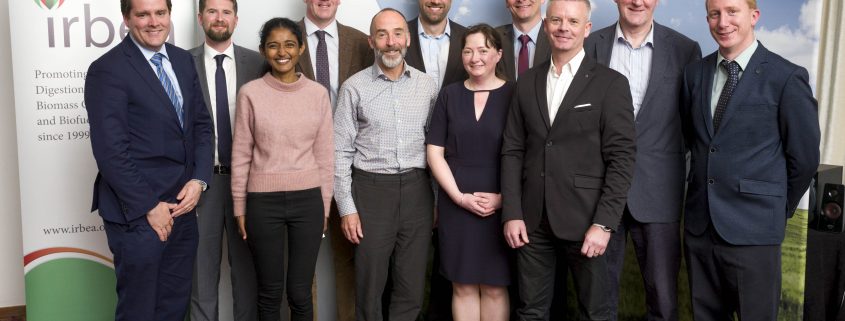
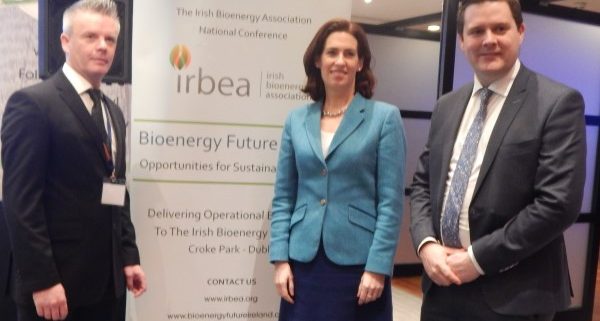

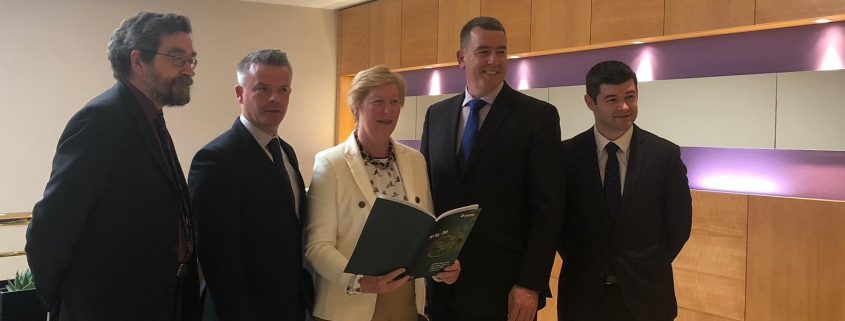
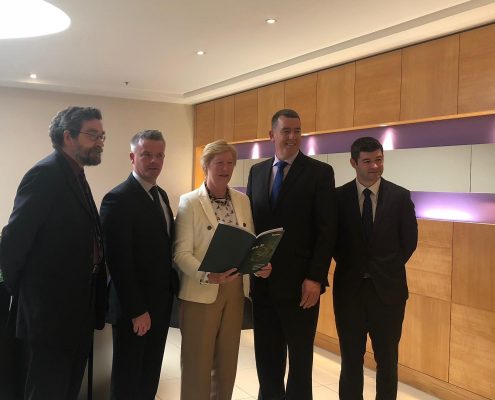

 Sean Finan here on the right with Des O’Toole (IrBEA President), Teresa O’Brien(Communications Manager)
Sean Finan here on the right with Des O’Toole (IrBEA President), Teresa O’Brien(Communications Manager)